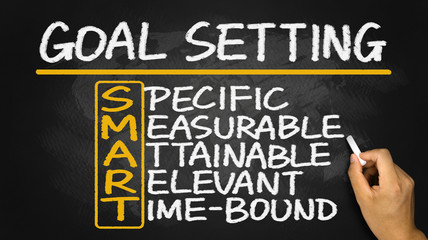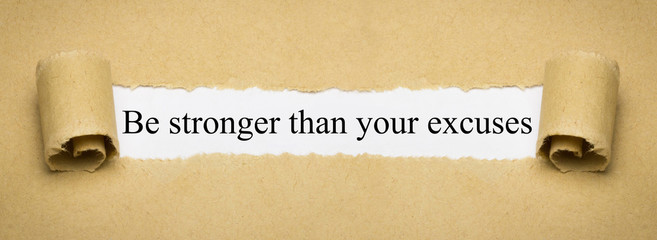Your New Years’ resolution is a declaration of something you wish to achieve during the year. For all of us, the beginning of a new calendar year often acts as a “reset button,” allowing us to make a fresh start or make significant changes in our behavior. Unfortunately, we all know that many New Year’s Resolutions fail. But why do they tend to fail? Behavioral scientists have documented the causes of failure as well as the keys to success. Read on to find out how to succeed.
” We all deserve the beauty of a new beginning. We all deserve to forgive our past mistakes so that we can move forward once more. Letting go is a deep, misty and winding road of inner reflection. It is a brave journey, so appreciate and celebrate each small, tentative step you take forward. “
– Christine Evangelou
The Best of Intentions Aren’t Enough
The start of a new year is all about new beginnings, fresh starts and new year’s resolutions! And it’s not surprising that the most common resolutions are focused on getting healthy or doing something to live life to its fullest.
Sadly, it’s also not surprising that despite the best of intentions to usher in a year of health, fitness, and overall well-being, research shows that even the most resolute of us aren’t very successful in keeping those resolutions. A landmark 1988 study out of the University of Scranton found that while 77% of people who committed to a New Year’s resolution stuck to it for a week, only 19% of those who made resolutions kept them two years later.
And as you can imagine, as more distractions enter our lives (social media, technology) keeping New Year’s resolutions gets more difficult. According to a survey by Statista, only 4% of people who made New Year’s resolutions in 2018 said they kept them.
We’re Here To Help You Reach Your Goal!
As you read through what behavioral science says about resolution success, note that the Global Martial Arts University (GMAU) has everything you need to help you stick to your resolution and succeed:
- Goal Setting – Our programs have skill-attainment levels that serve as your short-term goals. These requirements are laid out for you in the program content and the organization of classes and lessons available through the student portal.
- SMART – All the SMART-goal components are already in place for you; all you have to do is determine regular times to train. This is different for each individual student. You go at your own pace.
- Problem Solving – We have videos, blog posts, and many other digital resources to help you overcome common barriers to success. For example, our coaches often produce short lessons that highlight common problems they see in student assignment and belt-test videos.
- Social Support – The GMAU has a number of features that facilitate social connections with others. There’s a feature built into the student site, for example, that helps you find others near you to train with. You can interact with other students via the discussion board. You can communicate directly with your coach using the internal messaging system. The GMAU also has a presence on Facebook and Instagram, including a private GMAU Community Facebook page for student access only. Lastly, your instructor provides you with individualized feedback on your progress.
Go to our homepage to learn more about the GMAU, our instructors, pricing, testimonials, and MORE!

Goal Setting
Changing your behavior, or some aspect of it, doesn’t have to be restricted to the start of the New Year. It can be anytime.
It’s important to make realistic resolutions you think you can keep. If, for example, your aim is to exercise more frequently, schedule three or four days a week at the gym instead of seven. If you want to eat healthier, try replacing dessert with something else you enjoy, like fruit or yogurt, instead of seeing your diet as a form of punishment.
Begin with small changes
You need to begin by making resolutions that are practical. If you want to change any behavior, begin with small changes. According to market research, the majority of New Year’s Resolutions are related to exercise, diet, saving money, and losing weight. Breaking up longer-term goal into more manageable short-term goals is more achievable and increases the chances of success. The same principle can be applied to martial arts training.
Do one thing at a time
Replacing unhealthy behaviors with healthy ones takes time. And one of the easiest routes to failure is to have too many resolutions. So, avoid getting overwhelmed by thinking you have to reassess everything in your life all at once.
If you want to be fitter and healthier, do just one thing at a time. Give up drinking. Give up smoking. Join a gym. Eat more healthily. But don’t do them all at once. Just choose one and do your best to stick to it. Once you’ve got one thing under your control, you can begin the next one.
Answer: What? Why? and How?
Goal-setting research shows that goals exert their influence by directing attention and effort, maximizing persistence, and fostering problem solving in relation to the goals. Just about everyone who achieves something extraordinary is a deliberate goal-setter. The most exceptional people in the world have clarity of what they want to achieve and why they want to achieve it.
We often set targets that sound good to ourselves, but we aren’t always serious about them. This is because we don’t take time to acknowledge why we want to achieve them and how achieving them will make us feel. If we can answer these simple what / why / how questions (honestly), the rest of the journey to attaining even difficult goals becomes easier.
“Test” your goal before you commit to it
The Chronic Disease Self Management Program, developed at Stanford University, uses goal setting, decision making, and problem solving as central components to its well-documented success in helping adults take charge of their health. These components have been scientifically proven to increase confidence, skill mastery, and self-management.
One simple “test” used in this program, led by trained health educators, is to challenge the individual setting a goal to rate the likelihood they will achieve that goal on a scale of 1 to 10. Anything below a 7 is questionable. Simple tips like this take very little time and require us to consider if our goal is reasonable. Never undermine yourself with goals that are too lofty!

Be SMART
SMART goals are specific, measurable, achievable, realistic/relevant, and time-bound. Resolutions shouldn’t be any different.
A goal to “exercise more” is an admirable goal, but it’s not SMART. “Training at least 30 minutes 3 times a week for a month” is a SMART resolution. Also, connecting the resolution to a specific goal (e.g., “achieve my yellow belt”) can also be motivating and will reinforce that behavior.

Problem Solving
Perfection is unattainable
Remember that minor missteps and setbacks when going for your goals are completely normal and OK. Don’t give up completely because you ate a brownie and broke your diet, or skipped a training session because you were busy. Everyone has ups and downs; resolve to recover from the downs and get back on track.
Accept lapses as part of the process
It’s inevitable that when trying to give up something there will be lapses. You shouldn’t feel guilty about these minor problems. Just accept them as part of the learning process. Bad habits can take years to become ingrained, and there are no quick fixes to making major lifestyle changes. We learn by our mistakes and every day is a new day – you can start each day fresh.
DOIT!
One very successful problem solving activity is the DOIT! strategy. Developed by Michael Wehmeyer and Yong Zhao, DOIT! is a simple and useful tool that can quickly guide you through identifying, analyzing, and critically thinking about solutions to overcome obstacles to your goal achievement. The following is a quick summary of the tool that you can use anytime you don’t meet your daily, weekly, or monthly goals:


Social Support
Social support is a major predictor of behavior-change success. As such, we should all find ways to capitalize on the support system around us.
Share your experiences with others
Consider joining a support group to reach your goals, such as a workout class at your gym or a group of coworkers who are quitting smoking. Having other people to share your struggles and successes with makes your journey to a healthier lifestyle easier and less intimidating.
Tell family and friends about your resolution
Letting family and friends know you have a New Year’s resolution that you really want to achieve can be a powerful motivator. Another behavioral theory/strategy is called Strategic Self-Presentation. In short, this strategy can be used to motivate you in that when you publicly state your goal to someone, you now have an external expectation from others who can help you stay accountable. Don’t be afraid to ask for help and support from those around you.
Change your behavior with others
Trying to change habits on your own can be difficult. If you and your partner both smoke, drink, and eat unhealthily, for instance, it’s really hard for one partner to change their behavior if the other is still engaged in the same old habits. By having the same resolution, such as going on a diet, the chances of success improve.
Getting help from others
If you feel overwhelmed or unable to meet your goals on your own, consider seeking input from your family and friends. Those significant others, whom you respect, can offer advice on how to adjust your goals so they’re more attainable. Think of this as “joint” problem solving.
Global Martial Arts University
To help you achieve your resolutions for greater physical fitness, self-confidence, and mental well-being, the GMAU has many martial-art programs for you to consider. Check out sample videos from each of our programs, below.
When you watch a video on the GMAU YouTube channel you’ll see there are lots of other videos there from our programs. Find a course you’re interested in? Great! Set up a FREE Beginner’s Account and start training TODAY with no obligation!
